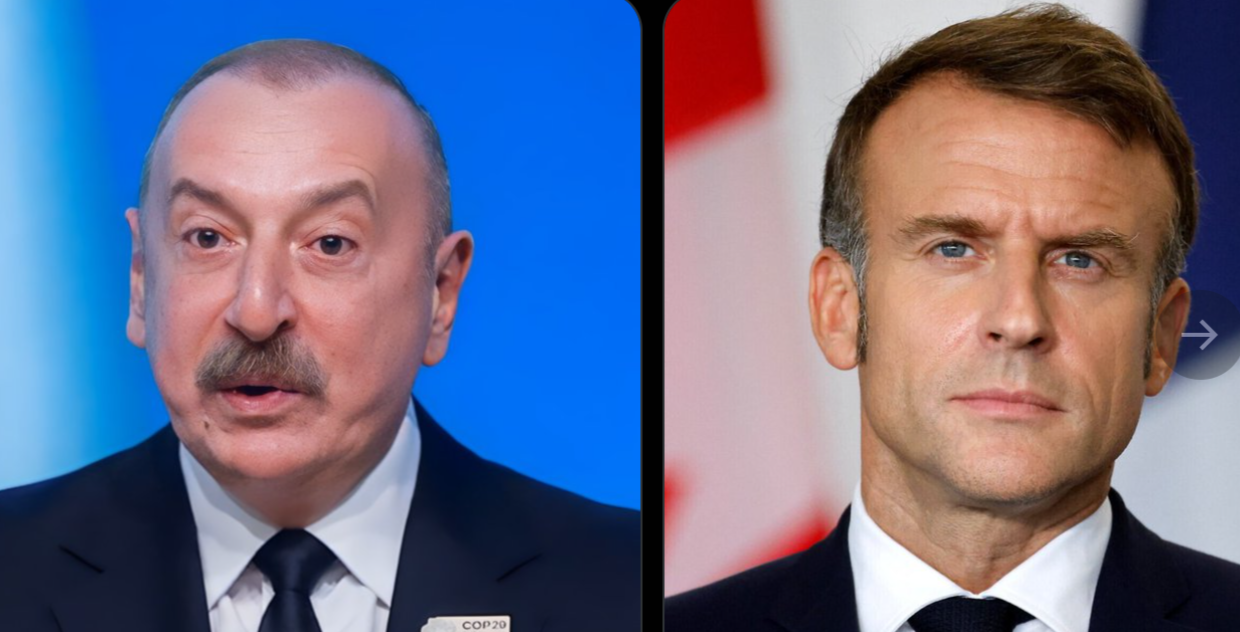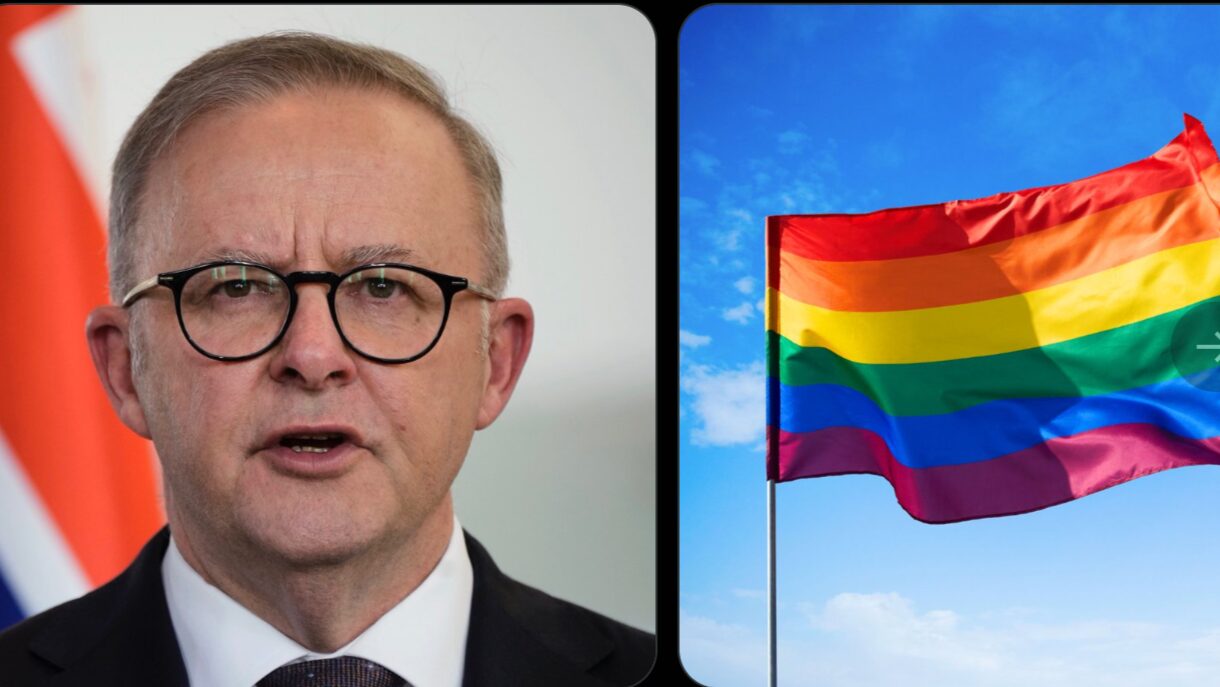CANDACE OWENS to publish a report on January 30th “PROVING” that Brigitte Macron is TRANSGENDER
Conservative commentator Candace Owens has made headlines with the announcement that she will publish a report on January 30th “proving” that Brigitte Macron, the wife of French President Emmanuel Macron, is transgender. Owens, known for her controversial and often provocative statements, has sparked widespread attention and debate with her upcoming report, which promises to delve into what she claims are substantial pieces of evidence supporting her assertion.
This announcement comes amid ongoing public discussions about gender identity, gender roles, and the scrutiny placed on public figures’ private lives. Owens, who has built a significant following on social media and through her media appearances, has not provided full details of the report yet, but the teaser has already ignited fierce reactions from both supporters and critics alike.
The Controversial Nature of the Claim
Owens’ assertion that Brigitte Macron is transgender is deeply controversial and is already attracting widespread attention. Brigitte Macron, born Brigitte Trogneux, has been the subject of public interest since she married Emmanuel Macron in 2007. The couple’s significant age difference—Macron is 25 years younger than his wife—has been a frequent talking point in the media. However, Owens’ claim takes the conversation to a much more personal and divisive level by suggesting that Brigitte’s gender identity is not what it appears to be.
There has been no credible evidence to support the claim that Brigitte Macron is transgender. Both Macron and his wife have long been public figures in France, with Brigitte playing an active role in her husband’s political career, particularly during his rise to the presidency. The claim has sparked outrage in some circles, with critics accusing Owens of spreading baseless rumors and engaging in harmful speculation about someone’s personal identity.
For Owens, however, this is not the first time she has made controversial statements that have drawn attention. Known for her outspoken views on politics, culture, and social issues, she has become a polarizing figure in the U.S. media landscape, often engaging in debates that challenge mainstream narratives.
The Reaction to Owens’ Upcoming Report
Since Owens announced her intention to release the report, reactions have poured in from various corners of the political and social spectrum. Critics have slammed her for perpetuating conspiracy theories and for what they see as an attempt to undermine and discredit the Macron family. Many have expressed concern over the personal nature of Owens’ claims and the potential harm they could cause to Brigitte Macron and her family.
Supporters of Owens, on the other hand, have hailed the upcoming report as an opportunity to uncover what they believe is a hidden truth. Some have argued that Owens is simply shining a light on a matter that they believe has been ignored by mainstream media. In their view, the report will provide evidence of a conspiracy involving one of the most prominent political couples in Europe.
The report’s release is expected to stir even more debate over issues of privacy, public figures’ rights to their personal lives, and the often blurred lines between politics and personal identity. The speculation surrounding Brigitte Macron’s gender identity is likely to be a contentious topic that transcends the political landscape.
Brigitte Macron’s Response to Gender Speculation
To date, Brigitte Macron has not publicly addressed rumors or speculation about her gender identity, including the claims made by Owens. The French first lady has largely maintained her privacy regarding her personal life, focusing instead on her public role as the wife of President Macron and her advocacy on issues such as education, social issues, and women’s rights.
While it is unclear how Brigitte Macron will respond to Owens’ forthcoming report, her position as a public figure in a highly scrutinized political marriage has made her a target of speculation in the past. The scrutiny faced by her and her husband has, at times, sparked discussions about the pressure placed on political spouses and the right to privacy for public figures. Brigitte Macron has remained largely dignified in the face of such controversies, focusing on her work rather than responding to personal attacks.
The Broader Implications for Public Figures and Privacy
Owens’ claims about Brigitte Macron are part of a broader trend in which the private lives of public figures, particularly political leaders and their families, are increasingly scrutinized by the public and the media. This trend raises important questions about the right to privacy and how much of a public figure’s personal life should be subject to public examination.
The rise of social media and the 24/7 news cycle has made it easier for rumors and conspiracy theories to spread quickly, sometimes with little regard for accuracy or the impact on those involved. While some argue that public figures should be held to higher standards of accountability, others contend that individuals, regardless of their political status, deserve the right to lead private lives without unwarranted invasions of their personal identities.
Owens’ upcoming report on Brigitte Macron’s gender identity, if released as promised, will likely contribute to an ongoing debate about the ethics of discussing personal matters related to public figures. It will also raise questions about the role of social media and alternative media outlets in shaping public perception and fueling divisive narratives.
The Broader Conversation About Gender Identity
At the heart of Owens’ claim is a broader societal conversation about gender identity and the fluidity of gender in modern culture. The topic of transgender rights and identity has become one of the most polarizing issues in contemporary politics. For many, gender identity is viewed as an immutable characteristic, while for others, the discussion about gender has become increasingly complex, with a growing recognition of non-binary and transgender identities.
Gender identity is a deeply personal and sensitive topic, and discussions about it can carry significant weight for individuals who are navigating their own gender journeys. However, when speculations about gender identity are framed as a matter of public discourse, it can often lead to controversy and division.
In the case of Brigitte Macron, the speculation about her gender identity can be seen as an attempt to control or diminish her role as a woman in the public sphere, rather than allowing her to define herself on her terms. For many, the idea of reducing her identity to a political talking point speaks to broader issues of objectification and the relentless scrutiny of women in the public eye.
In Conclusion
Candace Owens’ forthcoming report about Brigitte Macron’s gender identity is already generating significant attention, sparking debates about privacy, public scrutiny, and the ethics of discussing someone’s personal life in the public realm. While Owens has yet to provide concrete details about her claims, her assertion is sure to ignite further controversy, particularly as it challenges the boundaries of what is considered acceptable discourse about public figures.
As the date for the release of the report approaches, many will be watching closely to see how the Macron family responds and what impact this latest controversy will have on the ongoing conversation about gender, identity, and privacy in the public sphere. Whether or not the claims prove to be accurate, they are bound to fuel an already heated debate about the rights of individuals, particularly women, to maintain control over their personal narratives in a media-saturated world.

















Post Comment